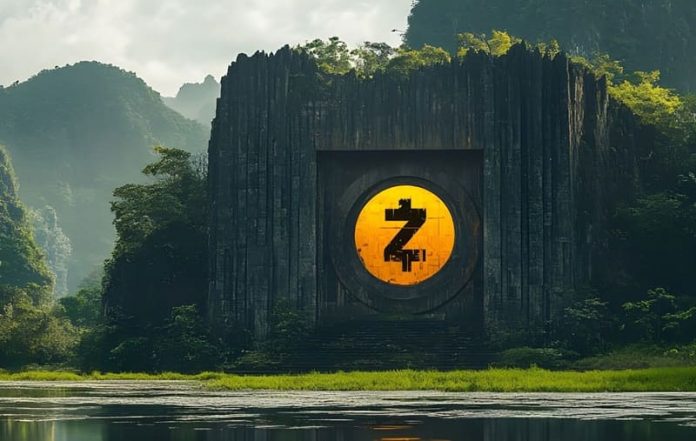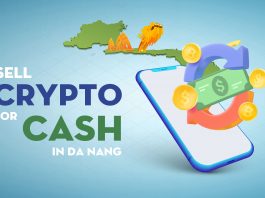If you don’t care much about “crypto”, this article ain’t for you 🙂
If you care about “earning yield” on your ZCash holdings, you can skip to the bottom section.
And if you are keen to hear a bit about what’s up with ZCash (aka “ZEC”) lately and how you can utilize it on BitcoinVN, Vietnam’s premier instant cryptocurrency exchange, read on.
ZCash – a brief history
Zcash (ZEC) originated as a response to the privacy limitations observed in Bitcoin. Its development began in 2013 when a group of researchers, including Matthew Green, Eli Ben-Sasson, and Christina Garman from Johns Hopkins University, proposed Zerocoin, a privacy extension for Bitcoin. However, recognizing the need for a more comprehensive solution, they pivoted towards creating a standalone protocol, which evolved into Zcash.
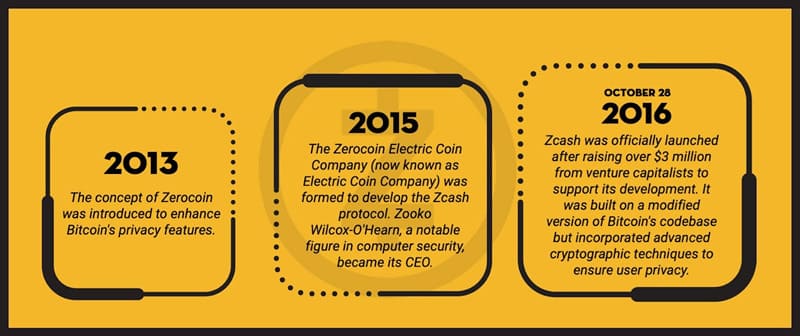
ZCash – Technical Innovations
Zcash introduced zk-SNARKs (zero-knowledge succinct non-interactive arguments of knowledge), which allow transactions to be verified without revealing any information about the sender, receiver, or transaction amount. This feature enables users to choose between transparent transactions (similar to Bitcoin) and shielded transactions that provide complete anonymity.
Please note that, as of this writing, BitcoinVN – like most other service providers, wallets, and exchanges – only supports transparent ZEC transactions (addresses starting with t-). However, based on market demand, we may expand our infrastructure in the future to support shielded ZEC transactions (addresses starting with z-).
ZCash – Governance and Community
As of October 2024, Zcash mining rewards are distributed as follows:
- 80% to Miners: Miners receive 80% of the block rewards for their role in securing the network.
- 20% to Development Fund: The remaining 20% is allocated to the Zcash Development Fund, which supports the project’s ongoing development and ecosystem growth.
The Development Fund is further divided among three key entities:
- Zcash Community Grants (ZCG): Allocated 8% of the total issuance (approximately 40% of the Development Fund), ZCG distributes funding to independent, third-party developers for projects that enhance the Zcash ecosystem.
- Electric Coin Company (ECC): Receives 7% of the total issuance (about 35% of the Development Fund) to support its efforts in maintaining and advancing the Zcash protocol.
- Zcash Foundation (ZF): Granted 5% of the total issuance (roughly 25% of the Development Fund) to promote Zcash’s mission, focusing on privacy and decentralized technology.
This funding structure, established in 2020, is set to continue until the next halving event, anticipated in November 2024. Post-halving, the community is considering new funding mechanisms to ensure the sustainable development of Zcash.
For more detailed information, you can refer to the Zcash Foundation’s official statement.
ZCash – “Number-go-down” technology?
Okay, nice – another nerdy project to play around with interesting technology.
The technology is, according to various luminaries in the sector, indeed one of the more interesting developments over the past decade, but does that alone make for a good investment case?
The answer has been, unequivocally, no.
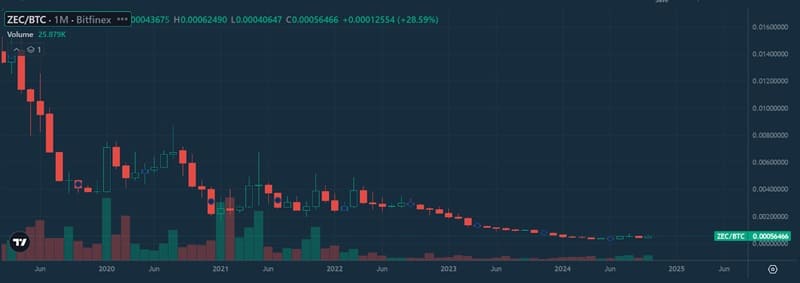
Due to the large allocation of newly mined coins automatically allocated to various development and grant initiatives, ZCash has essentially implemented “Number-go-down” technology algorithmically.
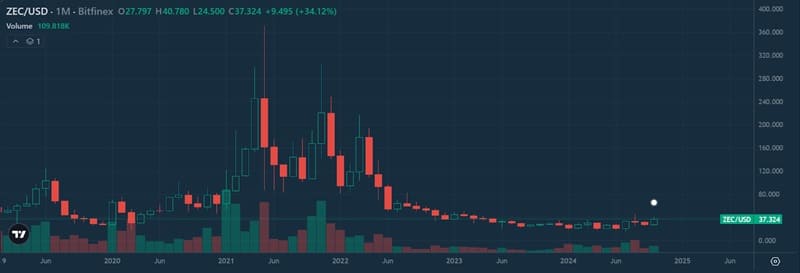
Get some if you want to explore the technology and/or actually use ZCash, but if history is any guidance (and it very well might be), then putting your savings into ZCash seems to be a rather bad idea.
With that said, if you made it this far in the article, we expect you to be a grown adult and able to make your own financial decisions. We are not your investment advisor 🙂
ZCash – BitcoinVN Staking Vault
Generally, we recommend that our users take self-custody of their assets, and we provide the tools and expertise to help them do so.
However, we recognize that some users prefer to take on additional risk in pursuit of “passive income”.
While we recommend this product only for seasoned and experienced investors, it is possible to earn income by providing liquidity to the BitcoinVN swap exchange.
By depositing ZEC into the ZCash staking vault, you will earn a portion of the fees from each swap involving ZEC on the BitcoinVN Exchange.
Currently, the ZCash staking vault has a maximum capacity of 1,000 ZEC, which meets BitcoinVN’s liquidity needs based on current turnover.
While we do not anticipate expanding the vault beyond this capacity (as we prefer to limit custodial holdings to what is necessary for smooth operations), the vault size may be adjusted depending on future liquidity demands.
As of this writing, the fully diluted APR (if the vault were fully staked with 1,000 ZEC) is estimated at approximately 1.44% annually.

For example:
- With 100/1,000 ZEC staked, the APR would be approximately 14.4% annually.
- With only 10/1,000 ZEC staked, the APR would increase to around 144%.
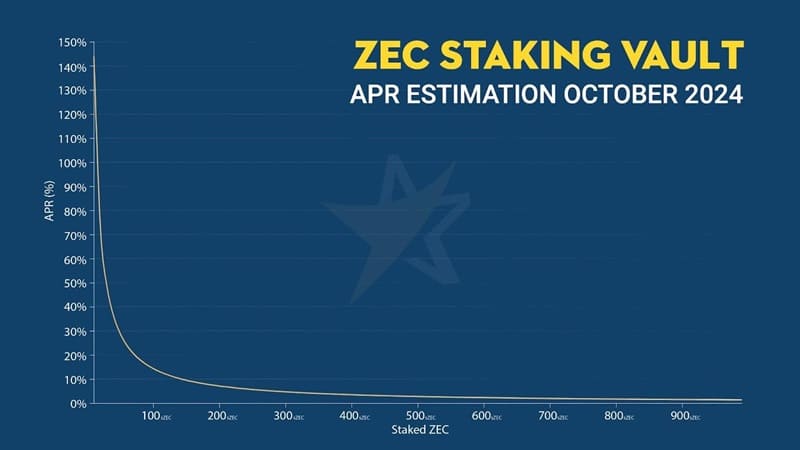
To understand how the dynamically adjusted APR works in detail, we recommend further reading: How does staking on BitcoinVN work?
How to secure your ZCash?
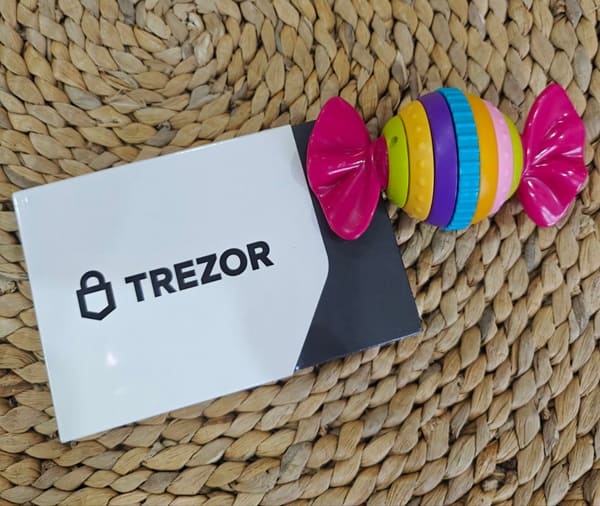
ZCash (ZEC) is supported by all Trezor and Ledger devices.
Taking self-custody of your funds is a recommended practice, and both wallet manufacturers have long-standing reputations in the market.
While more specialized devices like Coldcard or Blockstream Jade might be better suited for storing Bitcoin, using a Trezor or Ledger as your “daily driver” is a great choice for keeping your ZCash (ZEC) safe from malware and phishing attacks.
You can order your Trezor or Ledger directly from our colleagues at BitcoinVN Shop, with free and fast delivery within Vietnam, and no customs hassle involved.
Please note that both Trezor and Ledger currently support only transparent ZCash transactions!
–
Read more:
Monero versus Bitcoin & Lightning – a view from privacy maximalist “Digital Ghost”
